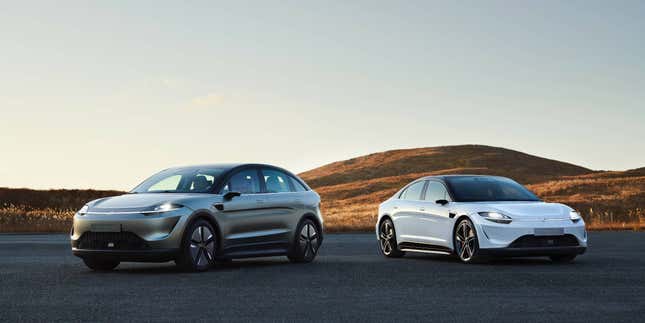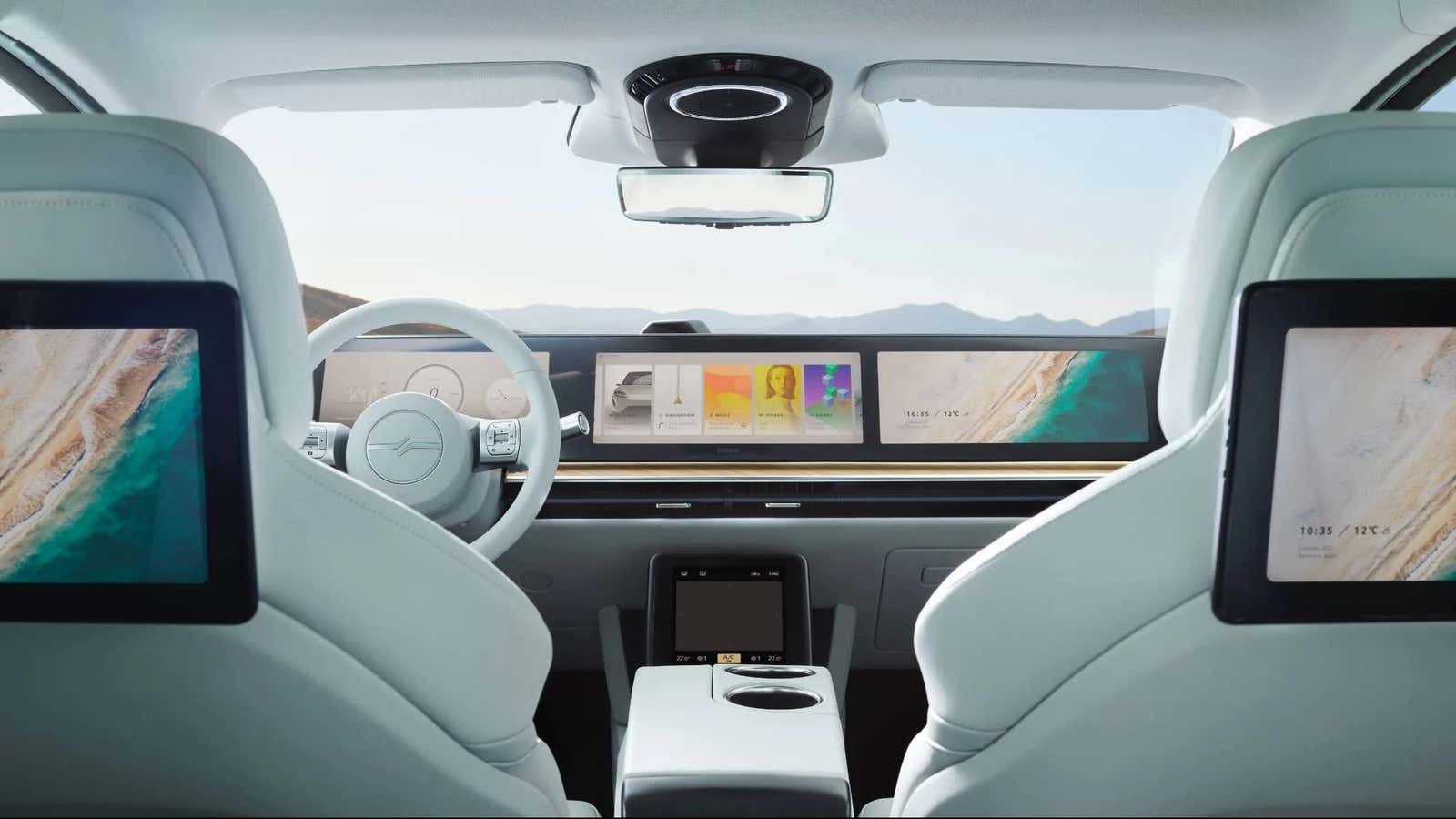Sony is serious about its electric car plans—serious enough to set up a whole another company for it.
Ahead of the Consumer Electronics Show (CES) in Las Vegas yesterday (Jan. 4), the Japanese giant announced plans to set up a new unit called Sony Mobility by spring 2022.
The company also unveiled the Vision-S 02 SUV—a new version of its first prototype EV, which was first shown at CES 2020. Over the last two years, the car, which initially seemed like an ad for Sony’s range of technology, has gone way beyond a gimmick. It has been testing on European roads since the end of 2020.
“With our imaging and sensing, cloud, 5G and entertainment technologies combined with our content mastery, we believe Sony is well positioned as a creative entertainment company to redefine mobility,” CEO Kenichiro Yoshida said at the event. The car has 33 safety sensors, sophisticated in-car entertainment with high-quality speakers, and impressive gaming capabilities.
Whether Sony plans to make electric cars independently, or partner with established carmakers, is still unclear.

Sony, Apple, Xiaomi, Oppo—everyone wants to make electric cars
Sony is hardly the first non-carmaker to experiment with vehicles. Back in 1994, timepiece company Swatch’s founder Nicolas Hayek birthed the idea for the quirky Smart Car, which Mercedes built. However, ever since electric vehicles have entered the fray and made the industry a battleground for software supremacy, tech companies have gotten serious about making cars.
Apple has been working on autonomous cars for seven years, poaching and losing key talent along the way. Chinese smartphone giant Xiaomi has plans to create own-brand EVs, and has hired a team of 300 to make it happen. There are rumors that another Chinese phonemaker, Oppo, is also entering the EV market.
Other companies are getting in on the action by making tech for carmakers. Qualcomm capitalized on ”growing opportunities” in cars by partnering with Honda, Renault, and Volvo. NVidia’s software engineers are working with Volkswagen, Audi, Toyota, Hyundai, Volvo, and Mercedes. Samsung is jointly producing electric car batteries with Stellantis. Huawei, whose phone business has been hit hard by US sanctions, is lending a technological hand to Chinese state-owned car company Changan. The world’s largest electronics manufacturer, Foxconn, showed off three prototype EVs to lure clients.
The transition to EVs is natural for consumer electronics companies that already work on autonomous functions, batteries, safety controls, media and entertainment, gaming, and other tech elements that go into building electric cars. And the sector holds great promise for them: The electric car market will only grow courtesy of improving consumer sentiment and government policies favoring decarbonization, including financial incentives and city-access restrictions. At least 20 countries have committed to fading out internal combustion engine vehicles completely in the next 10 to 30 years.
